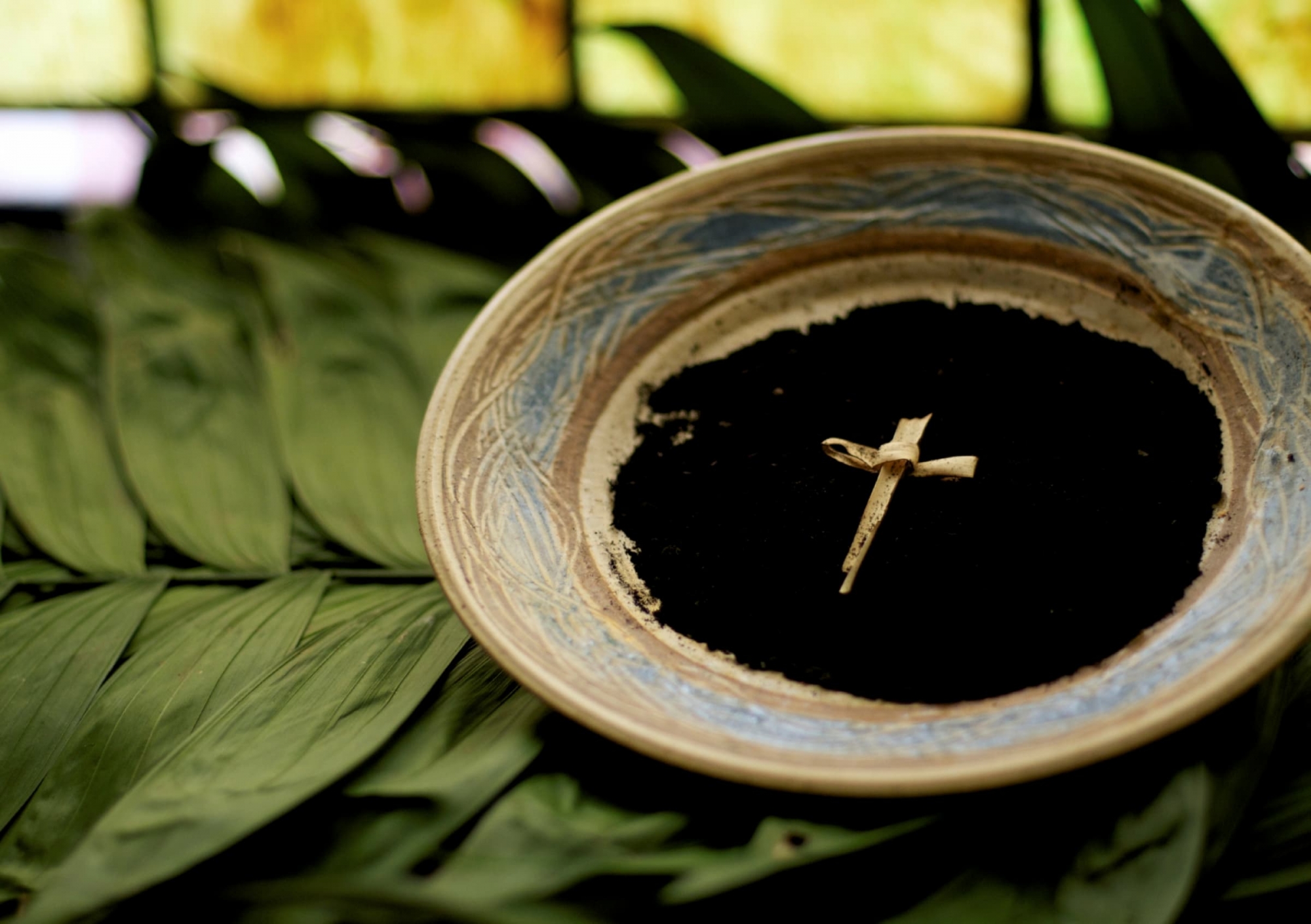Ash Wednesday
Ash Wednesday marks the beginning of six and a half weeks of repentance, fasting and abstinence in preparation for Easter.
For Christians, ashes are a symbol of penitence for things they have done wrong and for which they wish to be forgiven. It is also a reminder that we all come from ashes, and to ashes we all will return. The ashes are prepared and blessed by the priest, and placed on the forehead of the worshiper. Christians believe this marks the physical and spiritual beginning of a personal Lent.


What are the Ashes?
The priest first burns the palm crosses that were kept from the previous year’s Palm Sunday services and then mixes the ashes with holy water (which has been blessed) to make a greyish paste. The priest delivers the blessing by dipping his thumb in the paste and uses it to make the sign of the cross on each person's forehead.
Maundy Thursday
Maundy Thursday, also called Holy Thursday, is the beginning of the three day celebration of Easter. This period is called “The Triduum” and encompasses remembering the last supper, the crucifixion and the death of Jesus, and the Resurrection. It is the day before Good Friday.
Maundy Thursday commemorates the Last Supper of Jesus with his Disciples. During the meal Jesus took bread and wine and shared them with his disciples. We remember this each Sunday with the Eucharist. It is the night on which Jesus was betrayed by Judas in the Garden of Gethsemane.
The word 'Maundy' was derived from the Latin word “mandatum”, meaning a commandment. Jesus, at the Last Supper, commanded his disciples: 'And now I give you a new commandment: love one another. As I have loved you, so you must love one another.' John 13:3

Good Friday
Good Friday, is the Christian day to commemorate the crucifixion of Jesus and His death at Calvary. This Christian holiday is also known as Holy Friday, Great Friday, Great and Holy Friday, and Black Friday.
For Christians, Good Friday is an important day of the year because it celebrates what we believe to be the most momentous weekend in the history of the world. Ever since Jesus died and was raised, Christians have proclaimed the cross and resurrection of Jesus to be the decisive turning point for all creation. Paul considered it “of first importance” that Jesus died for our sins, was buried, and was raised to life on the third day, following what God had promised in the Scriptures (1 Corinthians 15:3).

Holy Saturday
Holy Saturday, Christian religious observance that ends the Lenten season, falling on the day before Easter Sunday. The observance commemorates the final day of Christ’s death, which many Christians traditionally associate with his triumphant descent into hell or “to the dead” .The early church celebrated the end of Lent with large baptismal ceremonies, but for many centuries no services were held on Holy Saturday in the Western churches, recalling the suspended state of Christ’s followers in the period between his Crucifixion and Resurrection. Beginning in 1955, the Roman Catholic and some other churches restored the evening Easter Vigil. The Eastern Orthodox churches had never abandoned the ceremony.
The vigil celebration may include lighting fires and candles to symbolize Christ’s passing from death to life and tolling bells to signify the joyous end of Lent. Many churches also celebrate the baptism of catechumens
(unbaptized converts) and
the confirmation or chrismation and first communion of both catechumens and candidates (converts who were previously baptized in a different Christian faith tradition) during the Easter Vigil.


